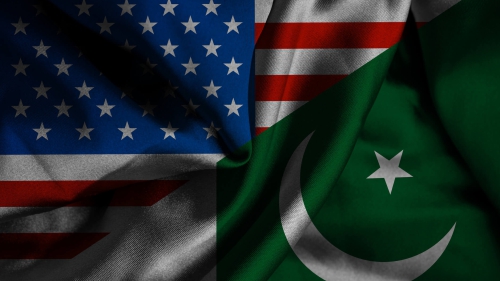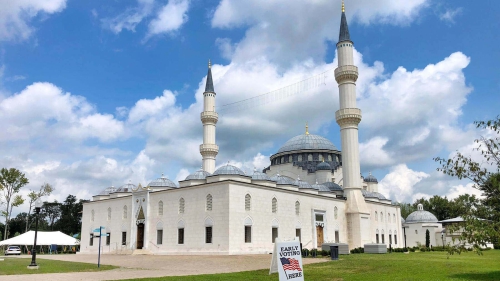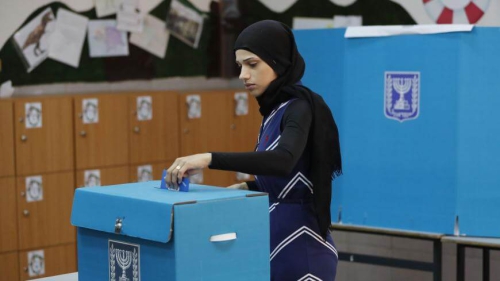Kuwaiti Elections Heat Up
As the campaign heats up ahead of Kuwait's July 3 parliamentary elections, the government of Emir Shaykh Jaber Al-Ahmad Al-Sabah has become resentful of criticism from opposition candidates. Islamist candidate Khalaf Al-Arbeed withdrew Thursday from the elections because of mounting pressure from authorities over his criticism of the government, according to Agence France Presse (AFP).
The Kuwaiti ruling establishment has shown increasing frustration over attacks made by opposition candidates. Of the 288 candidates for Saturday's election for 50 seats, many allege incompetence and corruption in the cabinet. Although political parties are banned in Kuwait, criticism has come from a variety of "political forces" - as they are called - ranging from Islamist groups to tribal parties that represent the 15 main bedouin tribes in Kuwait.
Tribal candidate Muhammad Mubarak Al-Watan seemed to echo the sentiment of many when he said to Kuwait's Arab Times last week, as quoted by AFP, "The policy adopted by the government is a catastrophe. The Kuwaiti people cannot bear wrong practices by the government." According to the same AFP report, opposition liberal Ahmad Al-Saadun, former speaker of the dissolved parliament, told the Arab Times that the government had only itself to blame, as the attacks were "largely attributable to corruption in state authorities." Islamist candidate Khalid Al-Adwa said on the same occasion that the government is guilty of "shortcomings and poor performance" and that it has not been "capable of satisfying public aspirations."
According to a July 1 AFP report, Kuwait has recently detained and fined many critics and has warned that "excessive criticism by candidates these days is unacceptable." But government ministers have been unable to suppress the attacks despite press surveillance and even the June 19 closing of the Kuwaiti office of the Qatari-based Al-Jazira satellite channel for fielding criticism of the Kuwaiti Emir from an Iraqi in Norway. The unrelenting criticism was exacerbated last week by the conviction of several former Kuwaiti officials in Britain on multi-million dollar fraud charges. Opposition candidate Saadun seized the opportunity at an election rally saying, "The thefts are not over yet. There are many [thieves] roaming freely in Kuwait while abroad they get jail sentences," as quoted by Reuters.
The widening divide between prospective MPs and the monarchy's cabinet comes in the wake of the Emir's May 4 dissolution of parliament over a flap in which MPs grilled cabinet ministers, ostensibly for misprints in a government issued edition of the Qur'an.
Although early elections were set for July 3, keeping with the Kuwaiti constitution, government ministers have had busy political agendas in the two-month absence of the parliament. According to a June 27 AFP report, the government has enacted a series of laws opening up the country to foreign investment and restructuring the social and economic realms. These laws, which deal with such controversial issues as allowing foreign firms to produce oil in Kuwait, arms dealing, economic restructuring and granting voting rights to women, will have to be voted on by the new parliament. But several candidates have alleged the laws are unconstitutional because they were enacted by the Emir's decree without having the justification of an emergency situation, according to Reuters on June 27.
Kuwait, which chairs the only elected assembly among the six gulf-Arab monarchies, has dissolved its parliament three times since the body's creation in 1963 and the monarchy has generally had a "prickly relationship with parliament," according to a June 27 Reuters report. The recent discontent does not bode well for the future relations between the parliament and the Emir-appointed cabinet. Kuwait University political science professor Khaldoun Al-Naqeeb, quoted by AFP on June 27, says the conflict between the parliament and cabinet "will continue," but adds that the real authority will remain, as always, in the hands of the Emir.
The conflict between parliament and the Kuwaiti government has a historical parallel in the battle between ancien regime French kings such as Louis XV and Louis XVI and opposition elements in the parliaments in pre-revolution France. As with the French Kings, the real danger for the Kuwaiti Emir is perhaps not the inflammatory rhetoric of a politically impotent parliament, but the general societal discontent this rhetoric reflects and perhaps inspires.
The Emir should maybe be less concerned with quieting the parliament and more vigilant about addressing the issues that make the public criticism resonate with the Kuwaiti people. For the Emir, the most dangerous statement voiced recently in the press has not been any of the allegations by parliamentary candidates. Rather, it is a seemingly benign statement by Kuwaiti citizen Muhammad Al-Azemi quoted by AFP on June 27: "Candidates are beginning to fire off at the government in the fight for votes. We voters love it."
Zakariya Wright is a staff writer at iviews.com

















